
-
Find the right food for your petTake this quiz to see which food may be the best for your furry friend.Find the right food for your petTake this quiz to see which food may be the best for your furry friend.Featured products
 Mature Adult Dog Food
Mature Adult Dog FoodHill's Science Plan Mature Adult Multipack Wet Dog Food with Chicken & Beef are complete premium pet foods for mature adult dogs from 7 years. Your dog will love these deliciously smooth and savoury minced loaves, formulated to deliver the appropriate amount of energy to support the needs of adult dogs.
Shop Now Adult Wet Dog Food with Beef
Adult Wet Dog Food with BeefHill's Science Plan Adult Multipack Wet Dog Food with Chicken, Beef & Turkey are complete premium pet foods for adult dogs from 1 year. Your dog will love these deliciously smooth and savoury minced loaves, formulated for balanced nutrition and overall health.
Shop Now Puppy Food
Puppy FoodHill's Science Plan Puppy Multipack Wet Dog Food with Chicken & Beef are complete premium pet foods for growing puppies from weaning until 1 year old and for pregnant and nursing dogs. Your puppy will love these deliciously smooth and savoury minced loaves, formulated for balanced nutrition and overall health.
Shop NowFeatured products Hairball & Perfect Coat Adult Dry Cat Food with Chicken
Hairball & Perfect Coat Adult Dry Cat Food with ChickenHill's Science Plan Hairball & Perfect Coat Adult Cat Food with Chicken is formulated to effectively help avoid hairball formation in adult cats while promoting a beautiful coat. Thanks to its mix of essential omega-6 fatty acids, this food benefits the cat's skin and fur, keeping them healthy and shiny. Our Advanced Fibre Technology helps reduce hairballs by naturally promoting their passage through the gut. This food is formulated with high-quality protein for a perfectly balanced, great-tasting recipe.
Shop Now Sterilised Adult Cat Food
Sterilised Adult Cat FoodHill's Science Plan Adult Sterilised Cat Dry Food with Salmon is specially formulated with ActivBiome+ Multi-Benefit Technology. It is a precisely balanced nutrition, tailored to meet the needs of sterilised cats, to help keep them lean & healthy.
Shop Now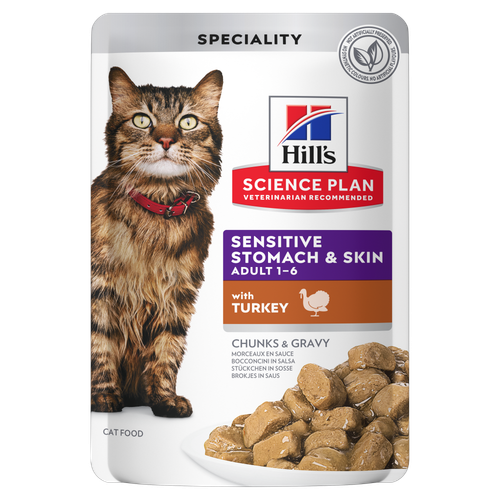 Sensitive Stomach & Skin Adult Cat Food
Sensitive Stomach & Skin Adult Cat FoodHill's Science Plan Sensitive Stomach & Skin Adult Wet Cat Food with Turkey is a complete pet food for adult cats, aged 1–6 years. This highly digestible wet food comes in a pouch and supports healthy digestion, as well as nourishes skin and promotes a thick and lustrous coat.
Shop Now -
Dog
- Dog Tips & Articles
-
Health Category
- Weight
- Food & Environmental Sensitivities
- Urinary
- Digestive
- Joint
- Kidney
-
Life Stage
- Puppy Nutrition
- Adult Nutrition
- Senior Nutrition
Cat- Cat Tips & Articles
-
Health Category
- Weight
- Skin & Food Sensitivities
- Urinary
- Digestive
- Kidney
-
Life Stage
- Kitten Nutrition
- Adult Nutrition
Featured articles The Right Diet For Your Pet
The Right Diet For Your PetIn people, the right diet is very important. If you are eating the wrong way for your metabolism, activity level, age and lifestyle you could end up with health issues.
Read More The Incredible Science Behind Your Pet's Microbiome
The Incredible Science Behind Your Pet's MicrobiomeLearn what your pet's microbiome is, how it contributes to your pet's gut and overall health, and why nutrition is important in maintaining healthy microbiomes.
Read More Show some love with wet foods: a great choice for pets with health issues
Show some love with wet foods: a great choice for pets with health issuesShow some love with wet foods: a great choice for pets with health issues.
Read More -
Joint care for dogs
Joint care for dogs
Does your dog have stiff joints?
“Stiff joints” is a general term for changes in the joint caused by normal or abnormal wear and tear. Stiffness is usually a sign of joint pain. Because your dog’s joint pain directly impacts their mobility and how well they’re able to get around, it can have a serious effect on your dog’s quality of life.
For dogs who have stiff joints, the cartilage (the tissue that “cushions” the joint between the bones) is worn away faster than it is replaced. For example, when the cartilage in a dog’s hip joint wears away, mobility decreases, while pain and disability progressively develop. Although stiff joints are not curable, it is possible to improve joint health in your dog and to help them manage their joint pain.
What causes stiff joints?
Age
As dogs get older, joint cartilage will progressively wear away. Although while it it is much more common in senior dogs, younger dogs can still suffer from stiff joints, too.
Breed
Certain breeds are more prone to developing joint problems. “At-risk” dog breeds include Labrador Retrievers, Golden Retrievers, German Shepherds and Rottweilers.
Excess weight
Excess weight puts excess stress on your dog’s joints and cartilage, and increases the risk of stiff joints.
Accidents or trauma
Trauma to cartilage may lead to stiff joints later in life, and adversely affect mobility.
Congenital or hereditary defects
Some breeds may have congenital or hereditary conditions that make them more prone to developing joint problems later in life.
What causes stiff joints?
Age
As dogs get older, joint cartilage will progressively wear away. Although while it it is much more common in senior dogs, younger dogs can still suffer from stiff joints, too.
Breed
Certain breeds are more prone to developing joint problems. “At-risk” dog breeds include Labrador Retrievers, Golden Retrievers, German Shepherds and Rottweilers.
Excess weight
Excess weight puts excess stress on your dog’s joints and cartilage, and increases the risk of stiff joints.
Accidents or trauma
Trauma to cartilage may lead to stiff joints later in life, and adversely affect mobility.
Congenital or hereditary defects
Some breeds may have congenital or hereditary conditions that make them more prone to developing joint problems later in life.

If you notice any of the following warning signs of joint discomfort in your dog, you should consult your veterinarian.





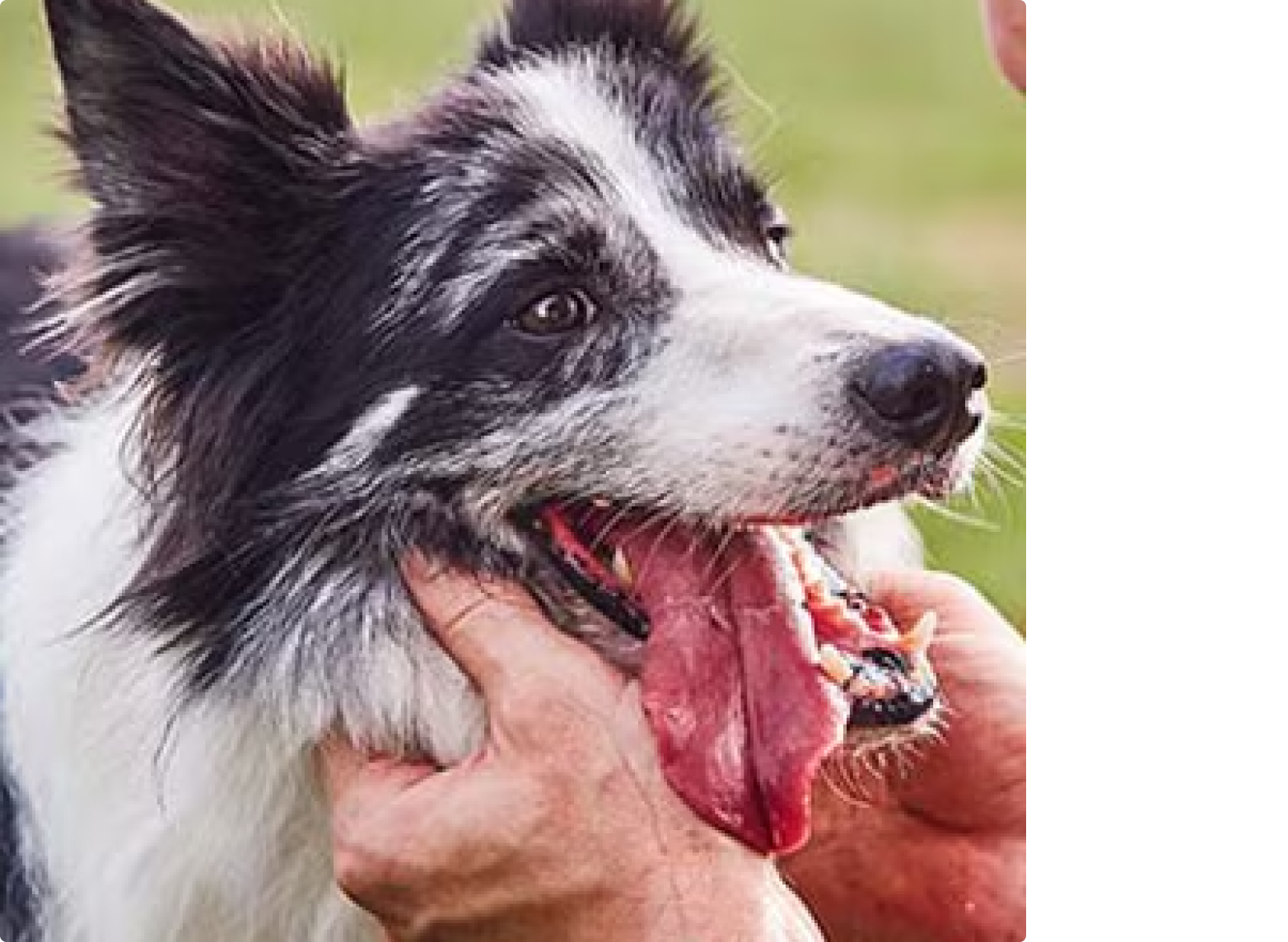
Joints and exercise
Gentle exercise is extremely good for your dog. Not only will it help keep their joints moving freely, but it will help them stay at a healthy weight and keep excess stress off their joints, which are important to their overall joint health.
The key is to control the amount of exercise, so your dog does not overexert their joints. Given an open space, your dog will usually happily run and run until they can’t any more and they may pay the price in terms of pain afterwards. By allowing a little bit of running and then putting them back on their lead for a while and taking a gentle stroll, you can control the exercise and let your dog get enough of a workout to burn off energy and keep joints mobile without causing damage.
If you’re worried about your dog getting more exercise than is beneficial, your veterinarian will be happy to advise you a sensible dog exercise regime.
Joints and exercise
Gentle exercise is extremely good for your dog. Not only will it help keep their joints moving freely, but it will help them stay at a healthy weight and keep excess stress off their joints, which are important to their overall joint health.
The key is to control the amount of exercise, so your dog does not overexert their joints. Given an open space, your dog will usually happily run and run until they can’t any more and they may pay the price in terms of pain afterwards. By allowing a little bit of running and then putting them back on their lead for a while and taking a gentle stroll, you can control the exercise and let your dog get enough of a workout to burn off energy and keep joints mobile without causing damage.
If you’re worried about your dog getting more exercise than is beneficial, your veterinarian will be happy to advise you a sensible dog exercise regime.
Switching nutrition may help
The food your dog eats can also influence their joint health and mobility. Balanced nutrition is essential part of an active, healthy lifestyle for dogs. If you’re concerned about your dog’s joint health, consult with your veterinarian and discuss the best food.
Switching nutrition may help
The food your dog eats can also influence their joint health and mobility. Balanced nutrition is essential part of an active, healthy lifestyle for dogs. If you’re concerned about your dog’s joint health, consult with your veterinarian and discuss the best food.
More products
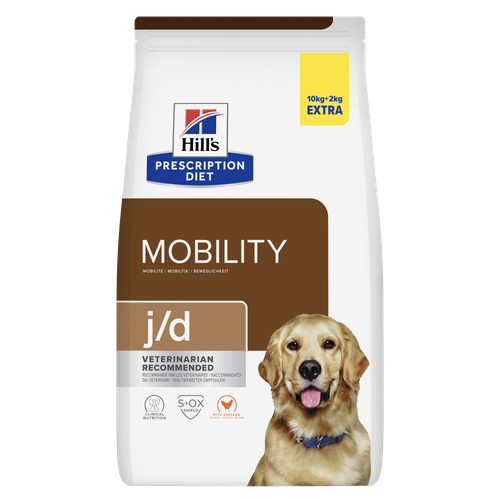
Clinically proven to support your dog's ability to run, walk and jump.
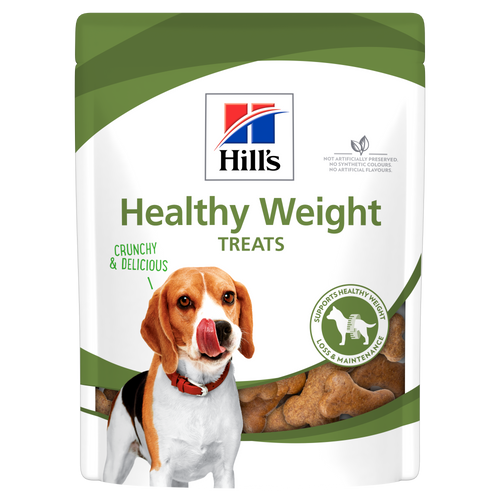
Hill's Healthy Weight Dog Treats - a tasty, complementary pet food formulated for adult dogs over the age of 1 to support healthy weight loss and maintenance.
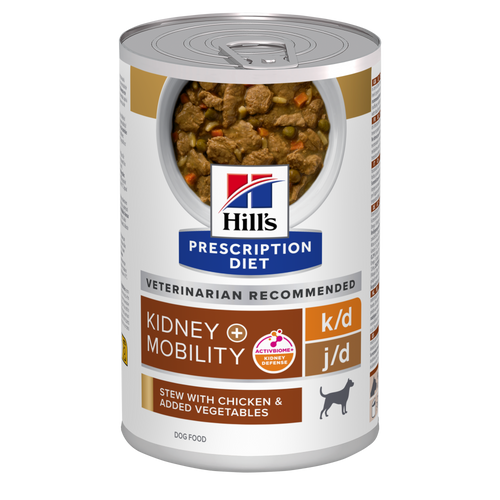
Delicious clinical nutrition to support mobility and longer and better quality of life in dogs
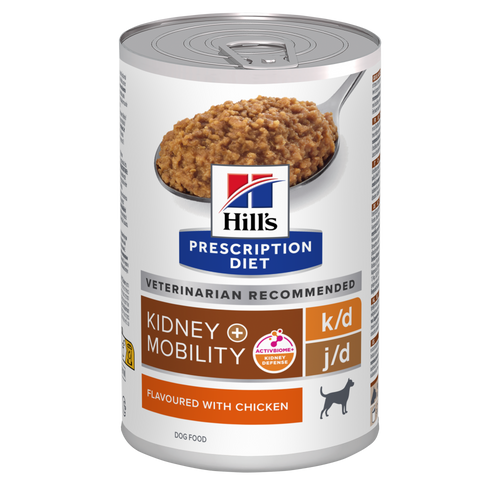
Delicious clinical nutrition to support mobility and longer and better quality of life in dogs.
Related articles

Learn to recognise the signs of congestive heart failure in dogs so you can give your dog the best chance of a longer, healthier life.

Learn about dog food allergies, including their symptoms and treatments. Discover more insights and care tips at Hill's Pet.

Who doesn't love a cold, wet dog nose rubbing up against them? However, if you go to nuzzle with your canine friend and notice their nose is dry, it's important to know what dog dry nose treatment to use and when their dry nose is serious enough to require a trip to the veterinarian.
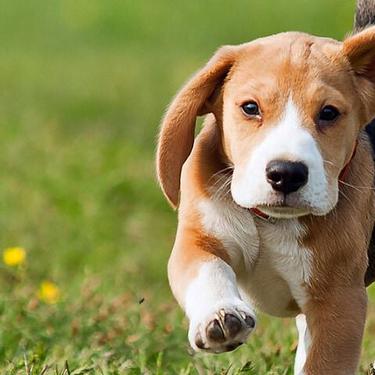
Avoiding joint problem flare-ups can be as easy as A-B-C!

